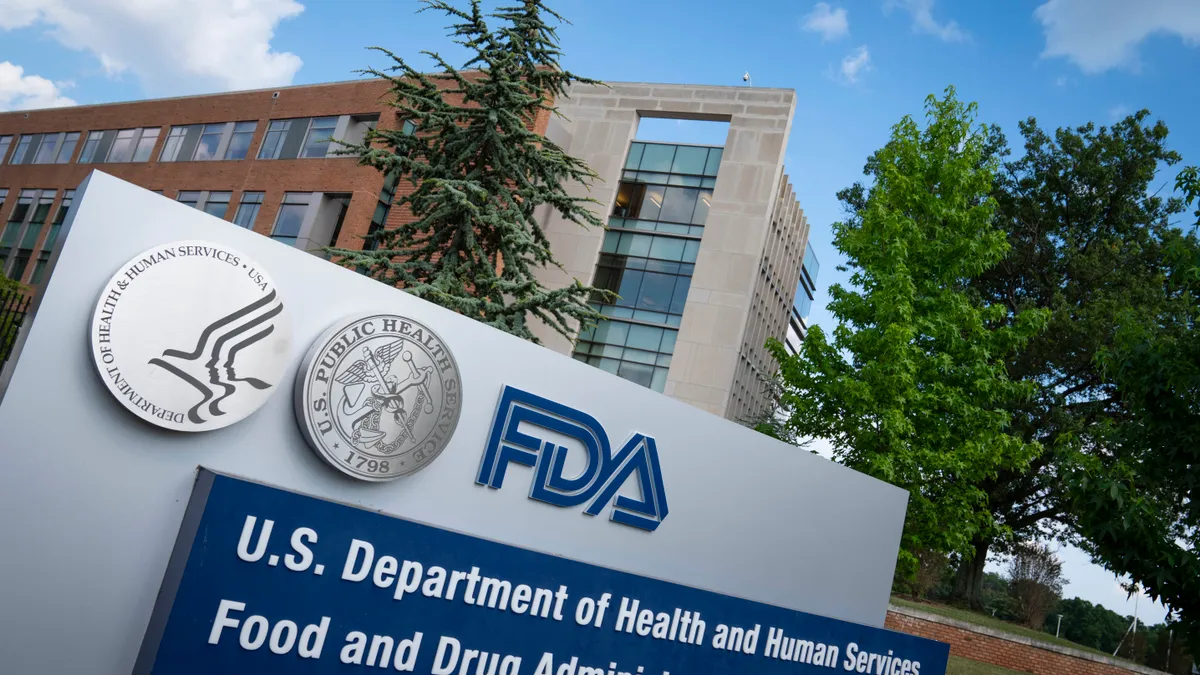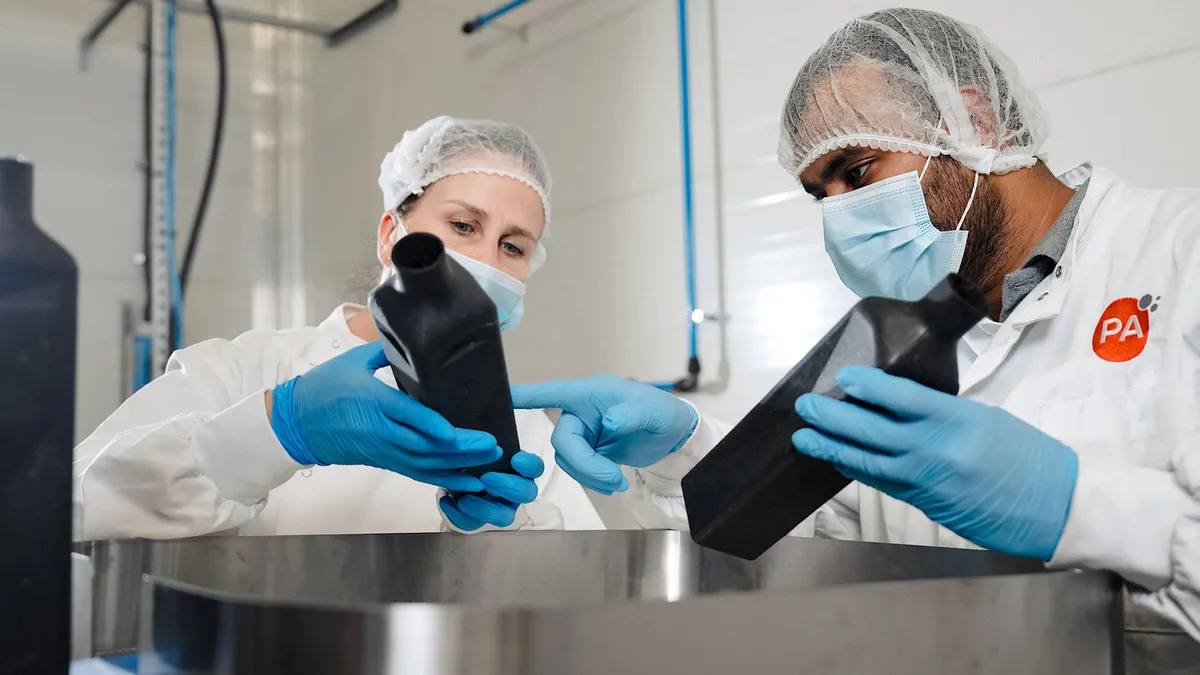The U.S. Food and Drug Administration said Friday it will not reconsider limiting certain ortho-phthalates in food packaging, maintaining a prior stance.
FDA denied a petition asking the agency to reconsider its previous denial of a citizen petition that originally sought a ban on eight ortho-phthalates and a revocation of prior-sanctioned uses for five ortho-phthalates for food packaging and production equipment.
The chemicals can be used to soften plastics. Nonprofit litigator Earthjustice, which followed up with FDA on behalf of a group of health and environmental advocates, said the request to reconsider came in light of “mounting scientific evidence that phthalates in food cause serious health harm.”
“The FDA’s decision to deny the original petition remains unchanged,” according to a release from the agency’s Center for Food Safety and Applied Nutrition. “We will continue to keep the food industry and the public informed of updates related to our activities on phthalates in food packaging and food contact applications.”
Researchers have linked phthalates to a range of health effects including fibroid tumors in women, notably in cases of high exposure to certain chemicals, and to preterm births, the risk of which may increase with greater exposure through eating or drinking foods that have been in contact with phthalates.
Environmental Defense Fund, Center for Food Safety and Center for Environmental Health were among the groups that petitioned the FDA to ban companies’ use of certain phthalates in plastic for these applications in 2016. Earthjustice is currently evaluating what next steps, if any, would be appropriate in its litigation, according to a spokesperson.
Outside of FDA, some other authorities have taken their own action against phthalates. For example, a law in Maine took effect last year prohibiting the sale of food packaging that contains intentionally introduced phthalates.
Similar to with other chemicals of concern, such as Bisphenol A (BPA) or per- and polyfluoroalkyl substances (PFAS), some companies have opted to voluntarily phase out phthalates. For instance, as part of its sustainable packaging policy, Yum Brands is committed to removing added phthalates, along with BPA and PFAS, from all of its brands’ packaging by 2025.
A timeline of FDA’s recent review for phthalates in food contact uses
-
April 16, 2016
FDA received a citizen petition from a coalition of public interest groups requesting a ban on food contact use for certain phthalates, and the revocation of the previously authorized use of certain other phthalates, citing safety concerns.
-
May 20, 2016
FDA filed a food additive petition from the coalition requesting the agency no longer allow food contact applications for 28 phthalates.
-
July 3, 2018
FDA filed a food additive petition from the Flexible Vinyl Alliance, a trade group, requesting the agency remove food contact uses for 23 phthalates and two other substances (used as plasticizers, adhesives, defoaming agents, surface lubricants, resins and slimicides), which FDA said demonstrated that the use of these substances had been abandoned by the industry.
-
Dec. 7, 2021
Earthjustice, on behalf of other advocacy groups, sued FDA in federal court to compel the agency to take action on the 2016 petition.
-
May 19, 2022
In line with FVA’s petition, FDA revoked food contact authorization for the 25 substances; as a result, only nine phthalates were left authorized for food contact applications (eight as plasticizers, one as a monomer); authorizations for 23 of the 28 phthalates covered in the May 20, 2016, petition were removed.
-
May 19, 2022
FDA denied the 2016 petitions, saying they did not demonstrate justification for the proposed actions.
-
May 19, 2022
That same day, FDA issued a request for information seeking data and information on current food contact uses, levels and safety data for the eight phthalates still authorized as plasticizers for use in food contact applications.
-
June 21, 2022
FDA received a petition from Earthjustice asking that the agency reconsider its denial of the 2016 citizen petition.
-
Sept. 26, 2022
FDA reopened the comment period for the RFI through December; FVA was among those who commented, emphasizing its position that the few phthalates retaining authorization for food contact are safe.
-
May 19, 2023
Five U.S. House representatives penned a letter to FDA Commissioner Robert Califf, following up on a June 2021 letter, asking FDA to hold a public hearing on objections to the denial of the 2016 food additive petition, calling the decision “flawed.”
-
July 21, 2023
FDA declined to reconsider its previous denial of the petition; Associate Commissioner for Policy Lauren Roth concluded in a letter to Earthjustice that the follow-up failed to demonstrate that FDA had not previously considered all necessary criteria in its review.















